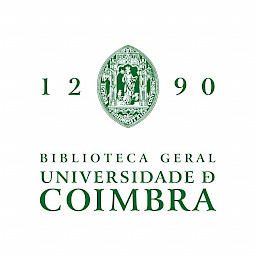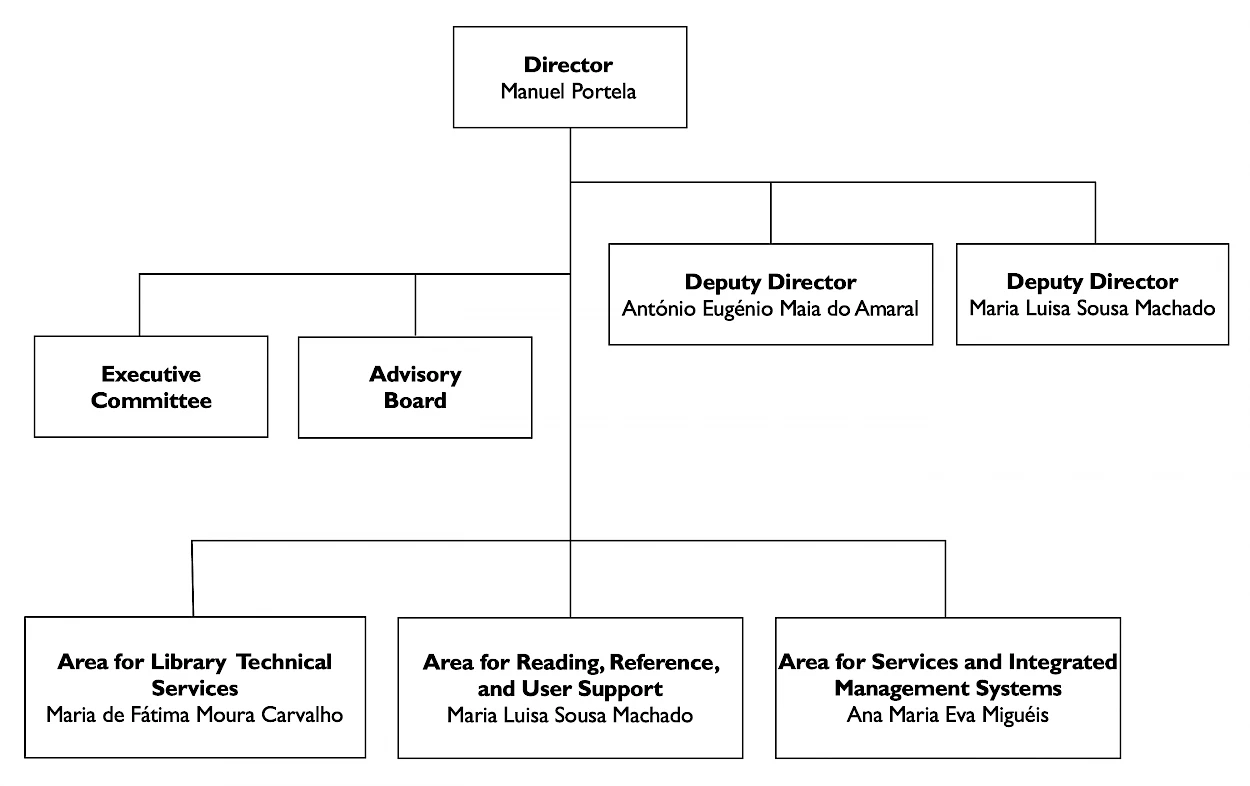The Library
Message from the Director
The traditional concept of library as a physical space whose function is to provide readers with access to its collections through a cataloguing and indexing system has been redefined in recent decades because of digital technologies. Digitisation has transformed not only the processes of information organisation, but the very notion of document and the modes of interaction between libraries and readers. On the one hand, bibliographic heritage is being progressively digitalised; on the other hand, a growing amount of document production is done in digital form. The coexistence of digital collections and paper books has changed both the imagination of the library and its institutional configuration. Due to the ubiquity of telecommunication networks, physical space and digital space overlap in our social representation of libraries.
In the case of a world heritage library of great historical and cultural value such as the General Library of the University of Coimbra, which adds to its vast collection of old books the national bibliography that it receives through Legal Deposit, one of the great challenges has been to combine access to its invaluable collections with the development of digital infrastructures. This shift from a predominantly custodial model, i.e. based on preservation and access to collections, to a model with a strong component of digital resources and services is reflected in the multiple functionalities available on the BGUC web portal. This remains an ongoing and open process given the continuous advances in information technologies, and it requires constant effort to synchronize the General Library of the University of Coimbra (BGUC) with the best international practices. This synchronisation will be our top priority.
Aware of the challenges posed by the growing complexity of the current document ecosystem, the change in reading practices and the expansion of library functions, the work of the General Library of the University of Coimbra (BGUC) during the 2023-2027 term will be centred on the following objectives:
- to enhance the bibliographic heritage of General Library of the University of Coimbra in the context of world university libraries, namely through the expansion of its digital collections, such as the Alma Mater, and the Joanina Library digitization project;
- to support the Open Access policy of the University of Coimbra, through the optimization of the Estudo Geral repository and the development of initiatives to promote Open Science;
- to improve coordination between General Library of the University of Coimbra (BGUC) and the various libraries of the University of Coimbra, both within the framework of the infrastructure of the Integrated Bibliographic Information System (SIIB-UC) and through sharing good practice;
- to reinforce cooperation with other cultural outreach and training support units (UECAF) of the University of Coimbra;
- to contribute to the knowledge of the book and the history of the book in the public space, supporting research and dissemination activities dedicated to works from its collections;
- to improve the service provided to researchers, students, and the general public.
The General Library of the University of Coimbra will seek to better integrate the conservation and management of its bibliographic heritage with its mission of supporting learning, research and reading. Defining itself at once as architectural space, information system and knowledge sharing platform, the General Library of the University of Coimbra will pursue its strategy of opening itself up to a broad participation of its local, national, and international community of readers.
Mission
The core mission goals of the General Library of the University are:
- The preservation, enhancement, technical treatment and dissemination of its bibliographic and documentary heritage;
- The support for university and extra-university teaching and research, through the provision of bibliographic and documentary information services and access to its material and digital holdings;
- The management of the Joanina Library;
- The coordination of services and integrated management systems shared by the various university libraries and other UC services;
- The management of digital platforms that support UC libraries, namely the institutional research repository of the UC scientific production (“Estudo Geral”), the old books digital library (“AlmaMater”) and the Integrated Bibliographic Information System (SIIB/UC).
Other mission goals of the General Library are:
- Making available to university and non-university public the national bibliography that it receives through Legal Deposit, donations or acquisitions;
- Participation in SIIB/UC, namely by managing its standardization component, contributing to increasing its quality and consistency, as well as carrying out common projects and tasks that require the skills and expertise of BGUC services;
- Cooperation with the National Bibliographic Database (PORBASE), in collaboration with the National Library of Portugal;
- Interlibrary loan at national and international level, as well as other forms of collaboration with other libraries;
- Participation in advisory or executive bodies or commissions in the library and bibliographic information sector, nationally or internationally.
History
The medieval university could not exist without books, so it is very likely that a library existed since D. Dinis ordered the construction of the first building for the university, before 1308, exactly on the site currently occupied by the General Library. However, the first documentary evidence we have is the transfer of more than 70 books «of all sciences» between two buildings, in 1503, still during the university's Lisbon period. After its definitive installation in Coimbra, in 1537, the operation of the «Livraria do Estudo» [Library of Study], as it was then called, became better known and began to be regulated by the Statutes of 1544. Those of 1591 even define it as «public », which is a rare case among European university libraries.
Unlike the 16th century, when the growth of the “livraria” and those who were responsible for it are more or less known, its operation in the following century is much less studied. The books that, according to medieval practice, had until then been tied to the shelves by chains, were only released between the academic years of 1611/12 and 1617/18, by André de Avelar.
During the Philippine period and then with the Restoration Wars, the library occupied various premises, always poorly installed and poorly equipped, until the construction, in 1717-1728, of the Joanina, one of the oldest "enlightenment" baroque libraries in Europe and certainly one of the most beautiful. This would have been the sixth “home” (if not more) that the library occupied throughout its history of more than 500 years, but not even 50 years had passed, the Marquis of Pombal already highlighted the need to double its size. However, it would continue to be heavily used, with later additions now demolished, until the current building opened to the public in 1962.
Even today, as a National Monument visitable by tourists, it continues to be the main depository of «Old Books» (16th-18th centuries) [MP2] of the BGUC, a living and useful library, where around 600 works are borrowed for consultation every year in the Manuscripts and Rare Books reading room. Part of its collection can be accessed free of charge from anywhere in the world through our Alma Mater digital library.
The General Library was awarded the European Heritage Label in 2014 for its exceptional role in affirming European values: for being "public" since the 16th century, for having always opposed any form of censorship of books, for its contributions to the advancement of library techniques, for the creation of the first technical magazine for Portuguese librarians and archivists and the first Association of professionals, the BAD.
Biographical notes on former Directors of the BGUC.
Legal Deposit
The General Library of the University of Coimbra is one of the libraries entitled under Decreto-Lei n.º 74/82, of March 3, to receive material published in Portugal. The BGUC was first listed as a Legal Deposit library by Decreto n.º 19952, 27 June 1931.
Legal deposit has existed in Portuguese law since 1798, when copies of published works had to be deposited in the Royal Public Library [Real Biblioteca Pública da Corte]. It helps to ensure that the nation’s published output, and thereby its intellectual record and future published heritage, is collected systematically and preserved for future generations. Legal deposit material is made available to readers within the designated legal deposit libraries.
Currently the legal deposit libraries of Portugal are:
- National Library of Portugal;
- General Library of the University of Coimbra;
- Lisbon Municipal Library;
- Porto Municipal Public Library;
- Public Library of Évora;
- Public Library of Braga - University of Minho;
- Coimbra Municipal Library;
- Library of the Royal Portuguese Reading Cabinet of Rio de Janeiro;
- Luís da Silva Ribeiro Public Libray and Regional Archive (Angra do Heroísmo);
- Regional Archive and Public Library of Madeira.
Regulation of the BGUC
The BGUC Regulation (Regulamento n.º 655/2020) was published in the Diário da República, 2nd series, No. 157, 13 August 2020, replacing the earlier version which had been published in the Diário da República, 2nd series, No. 238, 10 December 2009.
In addition to framing BGUC's mission within the University of Coimbra, the 2020 regulation reflects the transformations that occurred in the previous decade, particularly with regard to services and integrated management systems. This regulation defines the institutional mission, management bodies and their respective responsibilities, the organization of services, as well as the functions and institutional framework for the Joanina Library.
Staff
Executive Board
Full Professor in the Department of Languages, Literatures and Cultures of the Faculty of Arts and Humanities at the University of Coimbra. His academic work addresses writing and reading media and how they impact on literary forms and practices. The most significant results of his research can be seen in Literary Simulation and the Digital Humanities: Reading, Editing, Writing (Bloomsbury, 2022), LdoD Archive: Collaborative Digital Archive of the Book of Disquiet (https://ldod.uc.pt/, 2017-2023, eds. Manuel Portela and António Rito Silva), and Scripting Reading Motions: The Codex and the Computer as Self-Reflexive Machines (MIT Press, 2013). He was Director of the Teatro Académico de Gil Vicente (2005-2008), Director of the Department of Languages, Literatures and Cultures (2019-2021) and member of the General Council of the University of Coimbra (2016-2020).


